Application of chimeric antigen receptor-natural killer cells for the treatment of type 1 diabetes
For the past 100 years, insulin supplementation has been the mainstay of treatment for type 1 diabetes (T1D), which is characterized by progressive autoimmune-mediated loss of insulin-producing β c
[...] Read more.
For the past 100 years, insulin supplementation has been the mainstay of treatment for type 1 diabetes (T1D), which is characterized by progressive autoimmune-mediated loss of insulin-producing β cells in the islets of Langerhans over the last decades, technological advances in glucose monitoring and therapeutics have greatly improved the care and management of these patients. However, morbidity, mortality, and quality of life remain challenges for patients with T1D. Islet transplantation has been successfully performed, but there are several limiting factors, such as the lack of cadaveric donors and the need for lifelong immunosuppressive therapy. Therefore, there is a great medical need for alternative therapeutic approaches. In the current review, the current knowledge on novel approaches for the treatment of T1D with a focus on the potential of using chimeric antigen receptor (CAR)-T cells and natural killer (NK) cells is summarized.
Charlotte Steenblock ... Stefan R. Bornstein
For the past 100 years, insulin supplementation has been the mainstay of treatment for type 1 diabetes (T1D), which is characterized by progressive autoimmune-mediated loss of insulin-producing β cells in the islets of Langerhans over the last decades, technological advances in glucose monitoring and therapeutics have greatly improved the care and management of these patients. However, morbidity, mortality, and quality of life remain challenges for patients with T1D. Islet transplantation has been successfully performed, but there are several limiting factors, such as the lack of cadaveric donors and the need for lifelong immunosuppressive therapy. Therefore, there is a great medical need for alternative therapeutic approaches. In the current review, the current knowledge on novel approaches for the treatment of T1D with a focus on the potential of using chimeric antigen receptor (CAR)-T cells and natural killer (NK) cells is summarized.
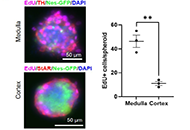 Development of adrenal 3-dimensional spheroid cultures: potential for the treatment of adrenal insufficiency and neurodegenerative diseasesOpen AccessOriginal ArticleAim: Regenerative and curative strategies would be desirable for neurodegenerative and adrenal diseases, and multipotent adrenal stem cells are considered as promising biological tools for this p [...] Read more.Charlotte Steenblock ... Nicole BechmannPublished: April 01, 2024 Explor Endocr Metab Dis. 2024;1:27–38
Development of adrenal 3-dimensional spheroid cultures: potential for the treatment of adrenal insufficiency and neurodegenerative diseasesOpen AccessOriginal ArticleAim: Regenerative and curative strategies would be desirable for neurodegenerative and adrenal diseases, and multipotent adrenal stem cells are considered as promising biological tools for this p [...] Read more.Charlotte Steenblock ... Nicole BechmannPublished: April 01, 2024 Explor Endocr Metab Dis. 2024;1:27–38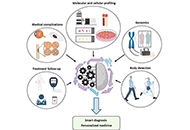 Recent advances in artificial intelligence-assisted endocrinology and diabetesOpen AccessReviewArtificial intelligence (AI) has gained attention for various reasons in recent years, surrounded by speculation, concerns, and expectations. Despite being developed since 1960, its widespread appli [...] Read more.Ioannis T. Oikonomakos ... Stefan R. BornsteinPublished: April 01, 2024 Explor Endocr Metab Dis. 2024;1:16–26
Recent advances in artificial intelligence-assisted endocrinology and diabetesOpen AccessReviewArtificial intelligence (AI) has gained attention for various reasons in recent years, surrounded by speculation, concerns, and expectations. Despite being developed since 1960, its widespread appli [...] Read more.Ioannis T. Oikonomakos ... Stefan R. BornsteinPublished: April 01, 2024 Explor Endocr Metab Dis. 2024;1:16–26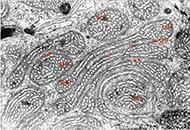 Unique original endocrine findings: the endoplasmic reticulum-mitochondrial unit in steroid producing cellsOpen AccessCommentaryStefan R. Bornstein ... Waldemar KanczkowskiPublished: April 01, 2024 Explor Endocr Metab Dis. 2024;1:12–15
Unique original endocrine findings: the endoplasmic reticulum-mitochondrial unit in steroid producing cellsOpen AccessCommentaryStefan R. Bornstein ... Waldemar KanczkowskiPublished: April 01, 2024 Explor Endocr Metab Dis. 2024;1:12–15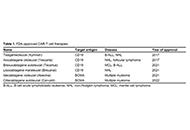 Application of chimeric antigen receptor-natural killer cells for the treatment of type 1 diabetesOpen AccessReviewFor the past 100 years, insulin supplementation has been the mainstay of treatment for type 1 diabetes (T1D), which is characterized by progressive autoimmune-mediated loss of insulin-producing β c [...] Read more.Charlotte Steenblock ... Stefan R. BornsteinPublished: April 01, 2024 Explor Endocr Metab Dis. 2024;1:4–11
Application of chimeric antigen receptor-natural killer cells for the treatment of type 1 diabetesOpen AccessReviewFor the past 100 years, insulin supplementation has been the mainstay of treatment for type 1 diabetes (T1D), which is characterized by progressive autoimmune-mediated loss of insulin-producing β c [...] Read more.Charlotte Steenblock ... Stefan R. BornsteinPublished: April 01, 2024 Explor Endocr Metab Dis. 2024;1:4–11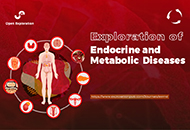 Message of welcome from the editor-in-chiefOpen AccessEditorialStefan R. BornsteinPublished: April 01, 2024 Explor Endocr Metab Dis. 2024;1:1–3
Message of welcome from the editor-in-chiefOpen AccessEditorialStefan R. BornsteinPublished: April 01, 2024 Explor Endocr Metab Dis. 2024;1:1–3